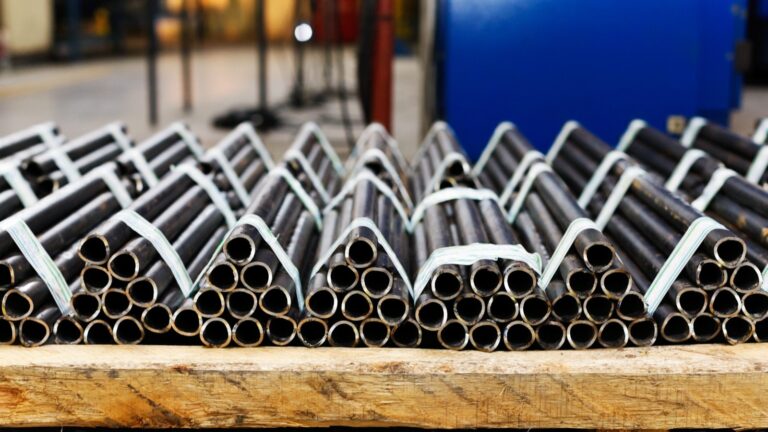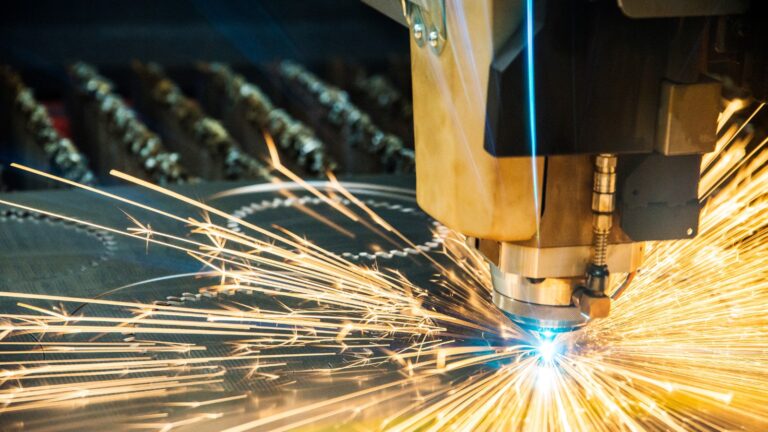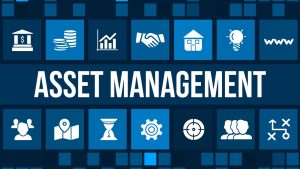What is one of the materials we come into contact with most frequently at home and industrial places? That is undoubtedly metal. Metal is utilised almost everywhere, in some way, and without it, life would be much less convenient. It is used in everything from tools and equipment to workplace furniture to kitchen appliances and cutlery. To satisfy customer expectations, the availability of materials, manufacturing schedules, and worker capabilities must be coordinated in the fiercely competitive market in which the fabricated metals industry operates.
Metal fabricators must be extremely organised to manage their businesses successfully due to the numerous procedures, such as bending, punching, folding, laser cutting, welding, and machining, involved in making those initial parts. Process, cost, and material management create an enormous challenge for the metal fabrication business. That is why the metal industry needs an Enterprise Resource Management (ERP) to meet its complex management requirements in no time.
In today’s article, we will explore the ERP solution concept and we will look into the challenges faced by the metal fabrication companies in Singapore. Last but not least we will discover the benefits of ERP solutions for the metal fabrication sector.
An Overview of ERP

An ERP system, which supports automation and procedures in finance, employee relations, manufacturing, distribution, logistics, services, procurement, and other areas, aids in managing the complete company. ERP systems collect and put together crucial business data, assisting organisations in maintaining lean, productive operations even as they grow.
Using a centralised database that compiles inputs from several departments, ERP is fundamentally an application that automates business activities and offers insights and internal controls. Every company is required to finish tasks that include several stakeholders who each have different duties. However, it becomes difficult when the data required to carry out procedures and make crucial judgments is dispersed among disparate platforms. As a company expands, it becomes increasingly difficult to maintain consistency due to the different data sources, which also restricts cooperation and efficiency.
Using an integrated system, ERP makes it easier to handle all these procedures effectively for industries such as metal fabrication. It can often be referred to as the company’s record-keeping mechanism.
The Challenges Metal Fabrication Companies Encounter

Due to high raw material costs and supply chain problems that delay delivery, fabricators and their clients confront difficult hurdles. Global metal prices are influenced by the London Metals Exchange, which regulates the whole sector. Inconsistencies in quality and price have been caused by the reliance on various factors for the manufacture of metal. Fabricators must properly acquire, receive, and store materials to start production operations and successfully market their goods.
Another barrier encountered by the metal industry in Singapore is meeting the unique and various demands of their clientele. The clients of the metal industry have spread over a broad range. So, accommodating these customised requirements is challenging but is hugely vital for customer satisfaction. For instance, some customers might want their metal supplier to focus on the design-to-order operation. That is where metal fabrication companies need to swiftly adjust to the designs of the clients and serve that requirement with their products. This may happen in the middle of the production process too. The metal fabrication business world is full of complex demands, if a company needs to stand out from the battle floor, the metal company must handle these requests efficiently and effectively.
For the Singaporean metal fabrication industry, it is quite challenging to capture the desired talents such as welders, assemblers, and finishers. It is more difficult to keep their knowledge and skills up-to-date with the advancement of the latest technologies in the metal sector. This is one industry that requires high levels of extensive skills and training. Compromising on quality, and wasting money, time, and materials is not an option for the metal fabrication sector in Singapore.
Top Benefits of Adopting ERP for the Metal Fabrication Industry

ERP technology is not limited to only one or a few aspects within an industry, but also it is a software system with a diverse range of integration capabilities to enhance the productivity of the companies. The ERP is referred to as a unified database for different sets of data across the enterprise. From accounting, sales, development, and engineering to logistics ERP has widened its wings. In the section below, we will be exploring the top benefits of opting for an ERP system for the metal industry.
Controlling Bills of Materials
Metal fabricators must successfully manage their bills of materials (BOMs). Despite the possibility of unique aspects in each project, there are frequently shared elements, such as different sizes of comparable portions. It is quicker and less error-prone to copy current BOMs and make necessary changes than to manually enter data. The procedure can be streamlined even more by importing BOMs from design applications.
The availability of multi-level BOM functionality is quite beneficial. Sub-assemblies can be used in even fairly straightforward projects, and grouping them into a single BOM gives a thorough perspective of the materials, labour, and cost requirements.
An ERP system’s BOM Control function, which keeps track of BOM changes and stores each version, is extremely beneficial. As a result, businesses can look at the initial BOM and monitor modifications made to a project, including any added expenditures. This data makes it easier to calculate the ultimate profitability of jobs and serves as a reference for the next initiatives.
Tracing Batchwise
ERP systems provide the beneficial advantage of batch traceability in the field of metal manufacturing. While batch traceability is important for metal fabricators working in regulated industries like the aerospace industry, oil, and gas, or defence, serial number traceability is advantageous to many business enterprises.
An essential function of ERP is the ability to follow materials from the supplier through each step of manufacturing till delivery to the consumer. This promotes trust in the quality, safety, and dependability of the fabricated metal goods by ensuring compliance with industry norms and enabling thorough traceability.
Handling Inventory
Metal has a distinct advantage over other raw materials in that it does not go off or become obsolete, in the way foods or electronics do. However, that means that it can be stored indefinitely, taking up space in a warehouse and tying up cash that could be used elsewhere. Having an ERP system to manage inventory can stop this from occurring by accurately recording what material is in stock, what has been used, and its location in the warehouse. The system will take this information into account when producing purchase order (PO) for required material so that existing stock is utilised first and excess stock is not ordered.
Some ERP systems can take into account offcuts and scrap, particularly important in metal fabrication as these can often be occupied in other jobs. By maximising materials, companies can reduce waste and save money on inventory.
Another benefit ERP systems offer fabricators is providing transparency of stock locations. Once a PO is mentioned in the receipt, labels can be added to raw materials and locations noted on the system. Finished stock can also be barcoded once the work order is receipted so that it is clear what each item is. This ensures that a company knows exactly what they have in stock and where it is.
Tracking Inventory
ERP technology is not limited to only one or a few aspects within an industry, but also it is a software system with a diverse range of integration capabilities to enhance the productivity of the companies. The ERP is referred to as a unified database for different sets of data across the enterprise. From accounting, sales, development, and engineering to logistics ERP has widened its wings. In the section below, we will be exploring the top benefits of opting for an ERP system for the metal industry.
Design Modifications
As we have mentioned in the challenges section, the metal industry is a place where it requires continuous modifications. Metal fabricators can encounter numerous alterations of the designs for complicated pieces over the project’s duration. This is also possible for a product that is consistently improved throughout time and produced regularly. Everybody must adhere to the most recent drawing in any circumstance. A quality ERP system will have a design register that stores and keeps all designs, modifications, and approvals, keeping the most recent version in use and preserving all earlier versions.
Level Up with Cutting-Edge ERP Solutions

ERP is seeing a rising demand for its excellent features and cutting-edge integration facilities especially when it comes to the complex industries such as metal fabrication. The more the metal industry expands, the more they require ERP solutions. Did you know that the worldwide ERP software industry will generate $167.33 billion in software sales by 2022? Not only that but also the ERP market is predicted to continue expanding quickly and reach a total market value of more than $49.5 billion by 2025.
Not only the metal industry, but also companies from any sector need a clear understanding of the new system and need to be able to build alignment throughout the business and carry out an ERP implementation successfully. If the metal fabrication industry in Singapore is specifically concerned, project success is guaranteed if the companies select the perfect tool according to their requirements.






